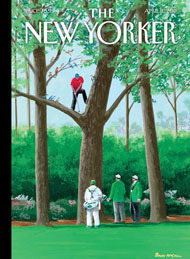Clifford Garstang's Blog, page 135
April 11, 2011
10 Most Frequently Challenged Library Books of 2010 - GalleyCat
Good to see that censorship, or attempted censorship, is alive in 21st Century America:
10 Most Frequently Challenged Library Books of 2010 - GalleyCat
10 Most Frequently Challenged Library Books of 2010 - GalleyCat
Published on April 11, 2011 13:18
WriterHouse Panel on Literary Magazines
 Thanks to WriterHouse for hosting the Literary Journals Demystified panel yesterday. I was there on behalf of Prime Number Magazine and joined two editors from Meridian: Editor-in-Chief Hannah Holtzman and Fiction Editor Lee Johnson. The panel was moderated by Sarah Collins Honenberger.
Thanks to WriterHouse for hosting the Literary Journals Demystified panel yesterday. I was there on behalf of Prime Number Magazine and joined two editors from Meridian: Editor-in-Chief Hannah Holtzman and Fiction Editor Lee Johnson. The panel was moderated by Sarah Collins Honenberger.I've been to lots of these panels as an audience member, and they are frequently repetitive, but I really think with the help of the moderator we maybe dug a little deeper than is usually the case. We each talked about what we're looking for, what we're not looking for, and so on. One thing we didn't get a chance to talk about is mistakes that we frequently see in submissions, so I thought I'd mention a little about that here.
First, from my point of view, these aren't fatal mistakes. That is, except in egregious cases, I'll keep reading until I know that the substance of the submission isn't going to be acceptable. But there are some basics that submitters should follow when submitting prose to Prime Number (other magazines may have other foibles):
Put your name on the manuscript. We don't read blind and I want to make sure I'm looking at the manuscript I'm supposed to be looking at. It's also useful to me, since I'm reading on a computer screen, if the wordcount is shown on the first page.Double space the manuscript (for prose). I frequently get submissions that are single spaced, and it's not easy to read. If it's a very short flash piece, that may not be an issue. But don't send me a 4,000 word story unless it's double spaced. I'll read the beginning of it to see if it's excellent, but I may not read further than that.Typos. I know that typos happen, but the more there are in a manuscript the more unimpressed I am. That's partly a function of time--I'm the one who will have to fix those typos if we accept the story, and the more there are the bigger a pain the editing process is going to be. Again, this isn't fatal for a submission, but the little things do add up.Usage mistakes. Writing is about language. Writers should know the language. We can manipulate grammar for effect, as long as the effect is apparent to a savvy reader, but usage is something we usually shouldn't mess with. "Alright" isn't standard; use "all right" instead--because I'll have to change it if we accept the story. Learn how to use commas, hyphens, and dashes. Learn the difference between "to lie" and "to lay". There are lots of style guides out there, but one essential guide is Strunk & White
 . Get it. Use it.Cover letters. Keep them short. Don't explain the story you're submitting. Do provide a brief bio as long as the information is relevant.Follow the guidelines. Ours are pretty simple. For fiction we have two submission buckets: flash, or stories under 1,000 words, and short stories, for stories between 1,000 and 4,000 words. Please submit the very short stuff in the flash bucket because sometimes I'm specifically culling the submission "pile" for short pieces. If yours is buried under the short stories, I may not find it until I'm reading the stories. Also, we ask that if you're submitting multiple pieces at one time--we'll take up to 3 flashes--put them in a single document or submission, rather than making 3 separate submissions. Responding to you 3 times instead of once takes time.
. Get it. Use it.Cover letters. Keep them short. Don't explain the story you're submitting. Do provide a brief bio as long as the information is relevant.Follow the guidelines. Ours are pretty simple. For fiction we have two submission buckets: flash, or stories under 1,000 words, and short stories, for stories between 1,000 and 4,000 words. Please submit the very short stuff in the flash bucket because sometimes I'm specifically culling the submission "pile" for short pieces. If yours is buried under the short stories, I may not find it until I'm reading the stories. Also, we ask that if you're submitting multiple pieces at one time--we'll take up to 3 flashes--put them in a single document or submission, rather than making 3 separate submissions. Responding to you 3 times instead of once takes time.
Published on April 11, 2011 07:13
Among the 'Unsavvy' by John Warner - The Morning News
 What actually goes on at The New Yorker?
What actually goes on at The New Yorker?Among the 'Unsavvy' by John Warner - The Morning News
(The linked article is from 2003. It would be very interesting to get an update . . .)
Published on April 11, 2011 05:07
April 9, 2011
Spring
 It sure doesn't feel like it today, but it's been spring for a couple of weeks now. This picture is of one of the wild cherry trees that grow all over the land behind my house.
It sure doesn't feel like it today, but it's been spring for a couple of weeks now. This picture is of one of the wild cherry trees that grow all over the land behind my house.I have mixed feelings about the arrival of spring. On the one hand, the flowering trees are beautiful. I have a lot of redbuds that are about to bloom and the dogwoods will come along shortly after that. And I'm happy with somewhat warmer weather (although we didn't even see 50 today).
But along with all that growth and warmth come . . . yard work. I have yet to clear the twigs and branches that fell during the winter snow and ice. I should have trimmed some of the garbage trees that have popped up along the edge of the woods and creek that runs through the yard, and I need to till the garden if I have hope of ever growing vegetables this year. (Growing weeds isn't a problem.) The weather hasn't cooperated, but maybe tomorrow.
Published on April 09, 2011 14:53
April 8, 2011
The New Yorker: "The Goo Book" by Keith Ridgway
 I think I like this story more having read the brief interview with Ridgway in which we learn that the characters of Hawthorn and Child tie the stories in Ridgway's collection together.
I think I like this story more having read the brief interview with Ridgway in which we learn that the characters of Hawthorn and Child tie the stories in Ridgway's collection together.The point of view character is a London pickpocket who doesn't consider what he does "crime". And anyway, it's just a sideline. His main occupation is as driver for Mishazzo, who is some kind of gangster, apparently, although what he does isn't entirely clear.
The pickpocket has a girlfriend who sometimes works in a café. They don't talk much, but they write notes to each other in a notebook that they keep in a kitchen drawer. They never look at it together and they each write in it only when they're alone in the house. The book is important to both of them.
So life is going on like that until the guy is picked up for pickpocketing by a couple of cops, Hawthorn and Child, who have been watching him. They've got him cold on his thefts, but what they want is information about his boss, Mishazzo. He's in a tough spot, so he agrees to pass information to them. Except that as he does this, he begins to worry that Mishazzo knows what he's up to, and so he gets nervous. When the boss asks him about his girlfriend, he says her name is Mary (we don't know either his name or the girlfriend's) and makes up a job for her. When Hawthorn tells him he can't help him if there's a problem, he panics and insists that the girlfriend come with him to Spain or France, or somewhere. He's so panicked that he thinks his place has been ransacked, even though the mess was caused by his hurried packing.
But, as he's explaining why they've left, Mishazzo doesn't seem like such a dangerous guy after all. A broker. A businessman. He hasn't actually seen any crimes taking place.
As he's telling her about Mishazzo, he realizes that he's forgotten about the notebook in the kitchen drawer. He's panicking again, but she reassures him that she has it. But the fact that he'd forgotten it stays with him.
So what's this all about? The book, clearly, is significant. It's how they communicate with one another, and without it, the story seems to be saying, they'd be lost. He's devastated that he was able to leave it behind in his panic, and now he's worried about what that says. He ran. He left it behind. But more importantly this petty crook is stuck between two lives. He's nameless in the story, probably because he's representative of so many young, aimless men, and he's facing a life on the run, always leaving behind what's important to him. He's lucky this time, but he won't be so lucky next time.
The title is interesting, too. What they write in the book is goo, love notes and so on. But is the book also, in a way, their Good Book, i.e., their bible? The bible of the religion of them? Which makes his near-abandonment of the book even more troublesome to him.
April 11, 2011: "The Goo Book" by Keith Ridgway
Published on April 08, 2011 11:21
Literary Journals Thrive, on Paper and Otherwise - NYTimes.com
 They don't mention Prime Number Magazine, but hey, it's thriving, too!
They don't mention Prime Number Magazine, but hey, it's thriving, too!Literary Journals Thrive, on Paper and Otherwise - NYTimes.com
Published on April 08, 2011 05:01
April 5, 2011
Review of Whale Man by Alan Michael Parker at The Nervous Breakdown
Published on April 05, 2011 07:37
April 4, 2011
The American Shakespeare Center's Renaissance Season 2011
 The American Shakespeare Center's 2011 Actors' Renaissance Season is now history. It's really a remarkable thing that they do: the company of actors, without directors or designers, mount five shows that run from early January to the end of March (April 3 this year). It's a wonder. And somehow makes for theater with great energy.
The American Shakespeare Center's 2011 Actors' Renaissance Season is now history. It's really a remarkable thing that they do: the company of actors, without directors or designers, mount five shows that run from early January to the end of March (April 3 this year). It's a wonder. And somehow makes for theater with great energy.This year, the repertoire consisted of just two Shakespeare plays: The Comedy of Errors and Henry VI Part 3. They also did John Marston's The Malcontent, Thomas Middleton's A Trick to Catch the Old One, and an anonymous play that hadn't been performed in about 400 years, Look About You. I managed to see all the shows once and I was going to try to get to some of them a second time, but as often happens during this compressed season, time got away from me. But all five shows were wonderful.
The season began with The Comedy of Errors. This play is now somewhat familiar to playgoers at The Blackfriars, as it's been done here at least three other times in the ten-year existence of the theater. But the gradual changes that take place in the company, and the home-stand appearance each year of the touring company, mean that each production is unique. This year one of the highlights was the pairing of Gregory Jon Phelps and Tyler Moss as Dromio of Syracuse and Dromio of Ephesus, respectively. Both actors have a wide range—I've enjoyed them both in dramatic roles—but for these parts played the comedy to the hilt.
Next was The Malcontent, which I'd not seen before. The character of Malevole (the exiled Duke of Genoa in disguise) is the memorable feature of this play, and Benjamin Curns, who has made a Blackfriars career of playing these dark connivers (like his Iago last season), made the role—Malevole is actually the good guy, which is even more fun—zing.
Look About You by Anonymous was unusual. Among other features, we get the character Robin Hood, who isn't quite the way we remember him to be. What's really interesting about the play, though, is that it fits into the History Cycle of Shakespeare plays. But what really makes it standout is the number of disguises the characters use. John Harrell as Skink was fantastic, shifting from one disguise to another. There's a nice article about the play in ASC's The Playhouse Insider
Next up was Henry VI, Part 3, this season's contribution to the history cycle. The more I've seen of the history plays the better I understand them, not surprisingly. Gregory Jon Phelps was wonderful as the weak/thoughtful King Henry VI, and so were all of the House of York, especially Jeremy West as Richard, Duke of York, John Harrell as Edward, and Benjamin Curns as the vile young Richard (fitting nicely into Curns's niche). I was also impressed with Chris Johnston as Lord Clifford, who is a merciless warrior who meets a bloody end. But the one most memorable feature here I think is Sarah Fallon as Margaret, King Henry's wife. She just takes over when Henry shows signs of giving in to York. It's a great part, and Fallon was all over it.
Last but not least was another play I'd never heard of, A Trick to Catch the Old One. This was a fun story about a guy in debt—Theodorus Witgood, played by Gregory Jon Phelps—who has been cheated by his uncle, Pecunius Lucre, played by John Harrell. Witgood launches a scheme involving Jane, played by Miriam Donald, to get Lucre to release Witgood's mortgage and pay off his other debts. The joke is that Jane is a courtesan, which provides ample opportunity for bawdy humor. Donald's performance is the stand-out for me here, but the whole production was wonderful.
It was a terrific season. I only wish I'd had time to get back to see the shows a second time. And now we start the Spring Season featuring the touring company. They're doing Macbeth, Measure for Measure, and As You Like It, starting this Wednesday, April 6 and running through June 19.
We're truly blessed to have this theater in our small city.
Published on April 04, 2011 13:17
Prime Number Magazine
Update 5.7 of Prime Number Magazine is live, with new fiction by Susanne Stahley, Lee Upton, and Christopher Lowe, and poetry by Erica Dawson, D.E. Oprava, Sally Rosen Kindred, and Barry Spacks.
Check it out! (And we're reading now for future issues, so please submit. We're looking for great flash fiction as well as longer stories (up to 4,000 words), essays, poems, reviews, interviews (query first), and short drama.
Check it out! (And we're reading now for future issues, so please submit. We're looking for great flash fiction as well as longer stories (up to 4,000 words), essays, poems, reviews, interviews (query first), and short drama.
Published on April 04, 2011 05:53
The Quivering Pen: My First Time: Clifford Garstang
 I've got a new essay--it's short--at The Quivering Pen: "My First Ghost"
I've got a new essay--it's short--at The Quivering Pen: "My First Ghost"The Quivering Pen: My First Time: Clifford Garstang
Published on April 04, 2011 04:32


 is up at
is up at 

